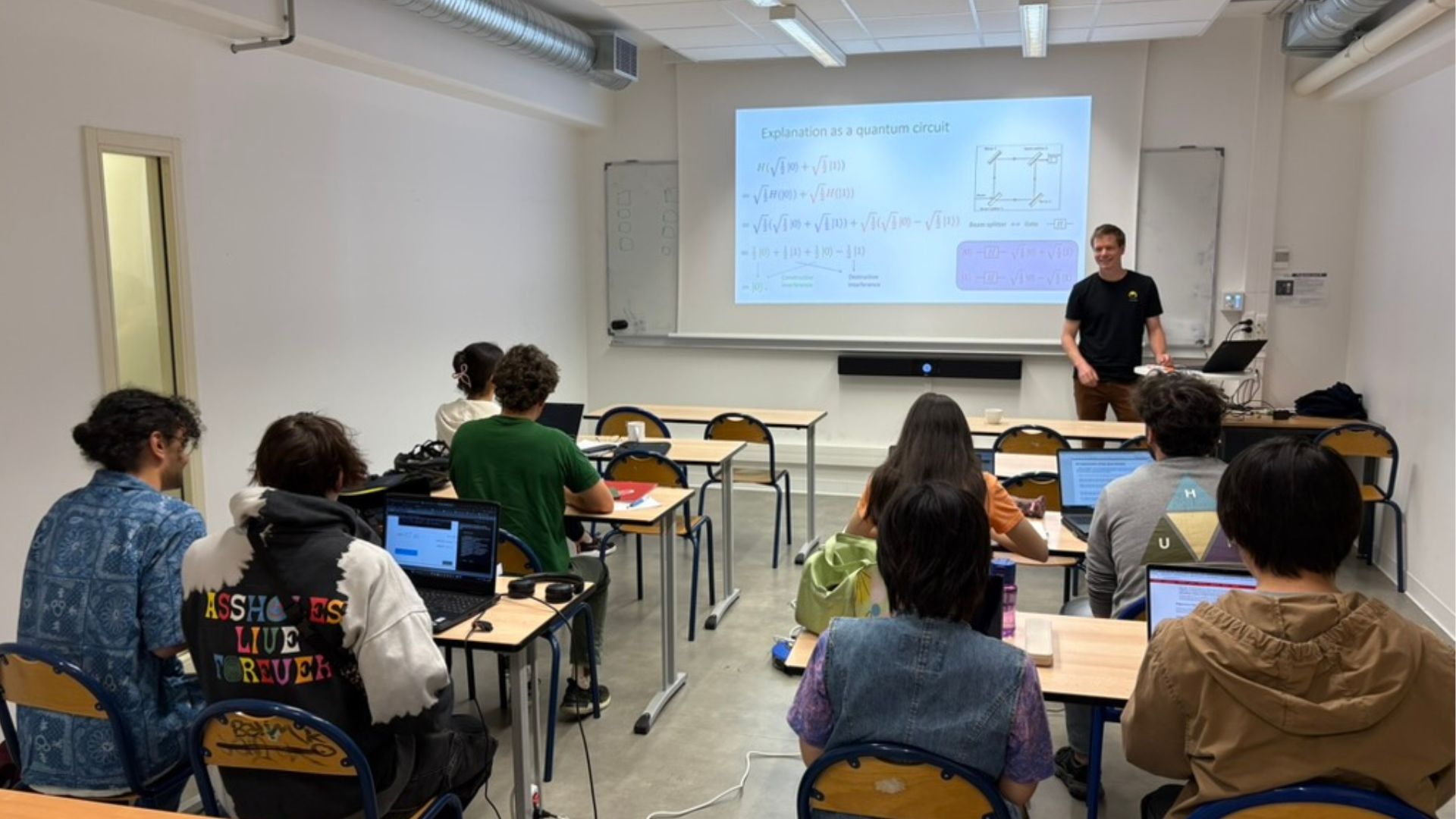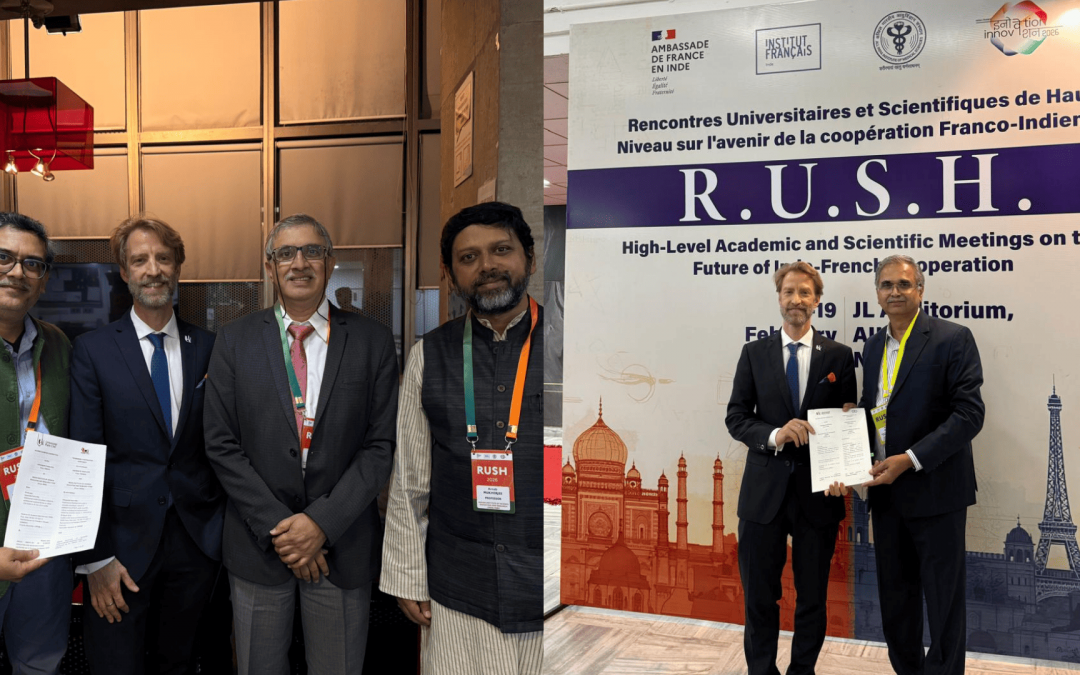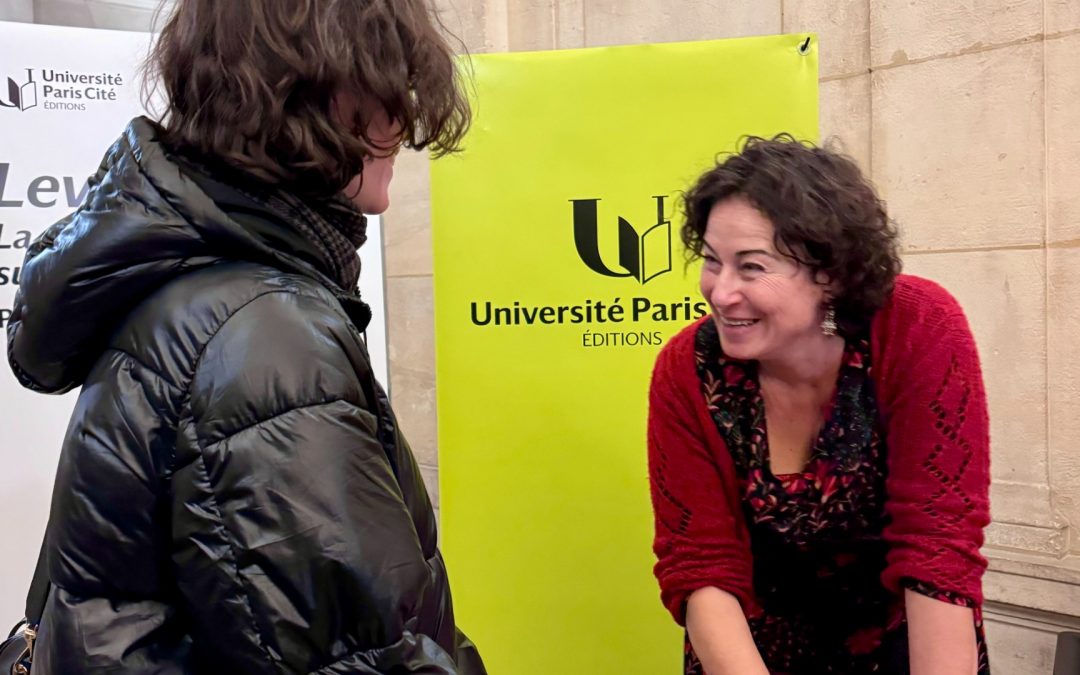The Graduate School Quantum Technologies of Université Paris Cité organised a one-day introductory session on quantum programming, led by Vivien Londe, a quantum computing specialist.

Attendees included interns from the Graduate School’s two masters programs, PhD students from the Institut de Recherche en Informatique Fondamentale (IRIF) and the Matériaux et Phénomènes Quantiques (MPQ) laboratory, and IRIF post-docs.
During the day, they had the opportunity to learn how to code well-known quantum algorithms using a quantum software development environment.
No prior knowledge of a quantum programming language was required, only a basic knowledge of the Python programming language was recommended for accuracy analysis.
Understanding a key concept: “phase estimation”
The morning session was dedicated to a fundamental algorithm in quantum computing: “phase estimation”.
Quantum computing specialist Vivien Londe showed students how this algorithm works, making it one of the most important quantum algorithms for chemistry.
Let’s pratice: “Hamiltonian simulation”
The afternoon session introduced students to Hamiltonian simulation. How does it work? Use a quantum system that we control well (the quantum computer) to simulate another quantum system that we want to investigate.
An instructive session appreciated by students
“It was an excellent opportunity to get an overview of some key concepts in quantum programming and to start working with quantum programming languages. Fundamentals as well as more specialized topics were clearly explained.” Student attendee
“The session is very well designed. I appreciated the simplifications made to the content, for example the implementation of a simple example of phase estimation instead of the more general version, which is very instructive and makes the session more accessible. I also really liked the illustration of phase estimation with the analogy of water waves and light beams.” Student attendee
À lire aussi
Journée internationale du droit des femmes : découvrez les initiatives UPCité 2026 !
Cette année, l'Université Paris Cité se mobilise pour la Journée internationale des droits des femmes à travers une programmation riche et engagée. Ce mois spécial est l’occasion de mettre en lumière les initiatives portées par notre communauté universitaire en faveur...
read more
L’Indian Institute of Science Education and Research de Pune et l’Indian Institute of Technology de Bombay : premiers partenaires d’UPCité en Inde
Antoine Kouchner, vice-président Stratégie et Relations Internationales de l’Université Paris Cité s’est rendu en Inde à l’occasion du déplacement officiel du Président de la République aux Rencontres Scientifiques et Universitaire de Haut niveau (RUSH). Dans ce...
read more
The Indian Institute of Science Education and Research in Pune and the Indian Institute of Technology in Bombay: UPCité’s first partners in India.
Antoine Kouchner, Vice-President of Strategy and International Relations at Université Paris Cité, travelled to India for the official visit of the President, Emmanuel Macron, to the High-Level Scientific and Academic Meetings (RUSH). In this context, UPCité...
read more
Retour sur la soirée de lancement du nouvel ouvrage de Pinar Selek à l’Université Paris Cité
Le 16 février dernier, la soirée de lancement de Lever la tête, le nouvel ouvrage de Pinar Selek, s’est tenue en présence d’Édouard Kaminski, président de l’université, devant un Grand Amphithéâtre comble. D'une recherche interdite à un acte de résistance pour...
read more